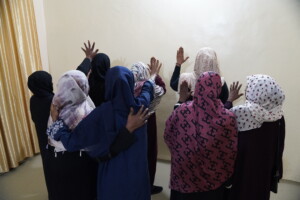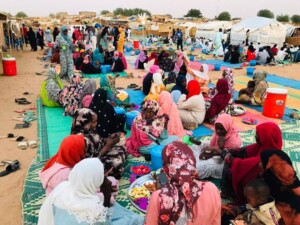Legal experts demand Sudanese law against female circumcision
Sudan told the UN it had been working on a law that prohibits female genital circumcision (FGM) in 2012. Legal experts demand the formation of the law now.
Legal experts have demanded the formulation of a national law that prohibits female genital mutilation (FGM) in all states of Sudan. The Sudanese government had claimed to be working on such legislation in 2012.
The experts also called for incorporating the fight against FGM and its harms in the public education curriculum, at a workshop held in Khartoum on Wednesday, organised by the Center for Community Studies under the name of The Legal Framework for FGM.
Legal expert Awatif Abdelkarim expressed his hopes that the concealment of the FGM practice will be considered a crime soon. He called for increasing the number of midwives, and banning traditional midwives from practicing FGM.
Nearly nine out of 10 Sudanese women (88 percent) between 15 and 49 years old in Sudan is circumcised, according to the Sudan Household Survey (2010). A trend in these results was that the practice of female circumcision happens less among younger Sudanese women of 15-19 years old.
The traditional belief in Sudan is that cutting the external genitals of a girl, ensures the family honour and her prospects in marriage. But the mutilation can lead to infections, and in worse cases, infertility, or complications during childbirth. The practice of FGM in Sudan was one of the reasons for researchers of the Thomas Reuters Foundation to rank Sudan as one of the worst countries for women's rights.
National strategy addressed religion, education
Sudan, in a letter to the United Nations on 16 October 2012, said it was making efforts to form a law that prohibits FGM. It had rolled out a national strategy to eliminate FGM at federal and state levels of health, education, media, law, religion, and information. Several works by noted Islamic theologians were published on the Sunni tradition of circumcising boys and exempting girls from the practice, according to the report to the High Commissioner for Human Rights.
Rashida Manjoo, UN Special Rapporteur on Violence against women, conducted a 12-day mission to Sudan last month. Two issues linked to girls were largely focused on: FGM and early marriages. “The silence and the denials, whether by state authorities or many civil society participants, regarding the subject of violence as experienced by women, is a source of concern,” Manjoo noted.
The Special Rapporteur said that “it is impossible to verify the true extent of the violence practised against women, owing to a range of factors. These include the limited existence of disaggregated data; social stigma; the underreporting of cases; an unresponsive and sometimes hostile environment, and the focus on reconciliation, at the expense of accountability, for crimes against women and girls.”











 and then
and then